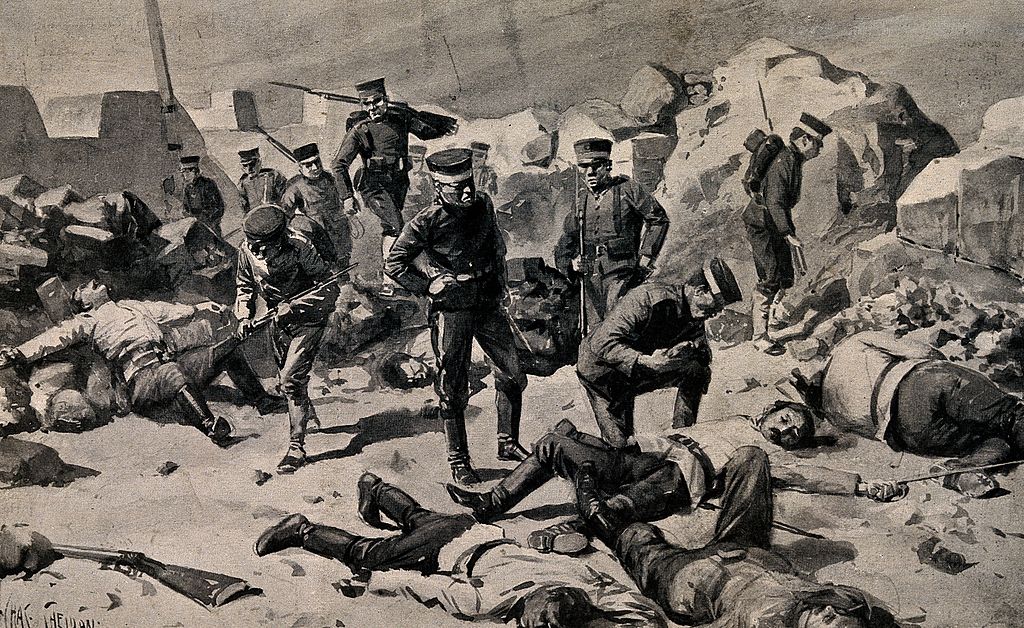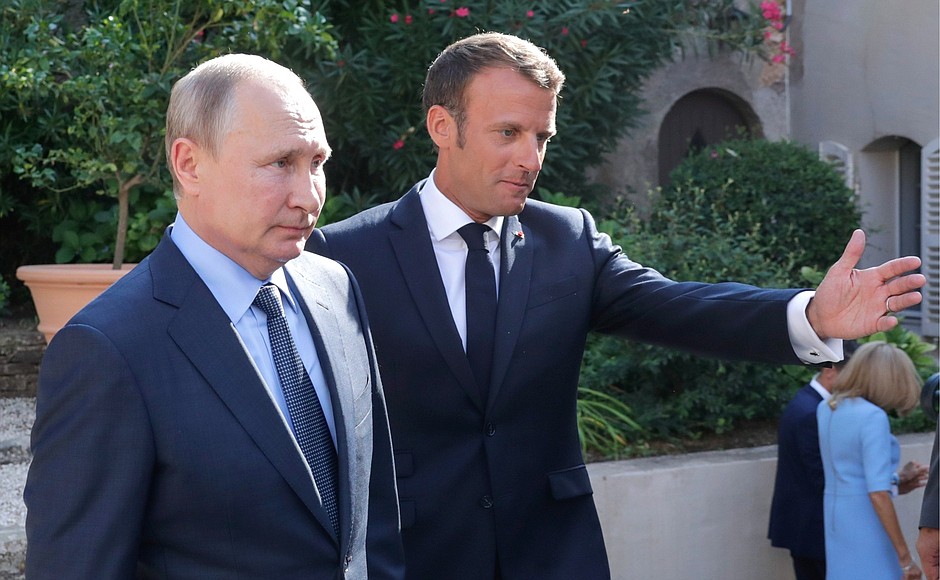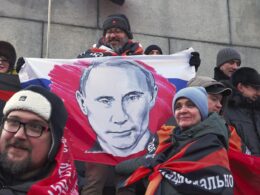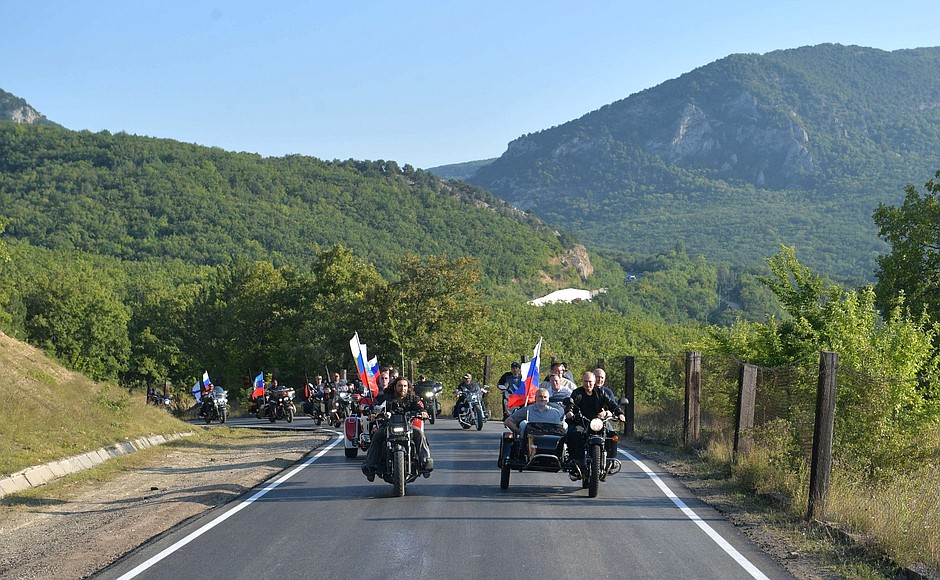Putin’s lies to the Russian people about the war in Ukraine, his suppression of civil liberties, and his criminalizing of dissent are strangling Russia. It does not seem extreme to ask, is Russian civil society dead?
Russian society has always needed its dissidents as a foil against the authoritarian government because for much of its history Russian society has lacked the means and opportunity to influence how it is governed. Under Putin, Russia has turned yet again toward authoritarian control of Russian society, with potentially disastrous consequences.
Alexei Navalny, Russia’s best-known anti-corruption crusader, got under Putin’s skin with his videos that attacked elite corruption, including that of Putin and former president, Dmitry Medvedev. But when Navalny tried to rally civil society in February 2021 after having been poisoned by the Russian security services, he failed and now faces years in prison.
Russia’s oldest civil rights organization, the respected Memorial International, was shut down on April 5, 2022, with barely a whisper. Since 1987 Memorial had exposed Stalin era human rights crimes and was already in 2014 labeled a “foreign agent” under Russia’s restrictive foreign influence laws.
Shuttering Memorial – part of Kremlin’s preparation for expanded war against Ukraine, Chubais says
Protests against election fraud in 2018 were considerably smaller than in 2011/2012 and had no discernable impact.
Recent modest anti-war protests have been fairly easily crushed using less force than, for example, in Belarus, where massive protests occurred last year over strongman Lukashenka’s stealing the presidential election or, say, Ukraine’s Maidan Revolution where Ukrainians battled security forces in the streets and 100 protestors were killed by government sharpshooters before President Yanukovych abandoned his office and fled to Russia.
However, that does not explain the widespread protests in 2011/2012, and the rising generation of Russians aged 18-30 is too young to have experienced the hardships of the 1990s.
Rather, as Russia has become increasingly authoritarian under Putin, recent public surveys point instead to public resignation. Russians’ response to oppression and to social trauma has been to put one’s head down and look the other way.
71% of Russians feel “pride, joy, respect, hope” regarding war against Ukraine – poll
It is a recurring theme in Russian history. It signals something deeper about Russian society. Something malign. As one commentator put it, Russians are not citizens, they are subjects; ordinary Russians lack the opportunity to act on their own behalf in the political or social spheres.
Throughout Russian history, the authoritarian government in Russia has enabled the perpetuation of humanitarian crimes against Russian society. It has also prevented Russian society from confronting its own history as evident from the absence of introspection and atonement for those crimes, some of which are among the most abhorrent ever perpetrated by a state upon its own people and which required the willful participation of its population.
[bctt tweet="As one commentator put it, Russians are not citizens, they are subjects; ordinary Russians lack the opportunity to act on their own behalf in the political or social spheres" username="EuromaidanPress"]
WWII–the Great Patriotic War–is a point of reference today for the Russian people’s relationship with the state. It is celebrated as the heroic defeat of Nazism but, in truth, millions of Russians died at Russian hands rather than at the hands of Nazis invaders. Earlier, Stalin had killed countless people or had them shipped to Siberia, just as Putin today poisons critics and persecutes Crimeans, especially ethnic Tatars. Four million Ukrainians died in Stalin’s Holodomor, the 1932/1933 man-made famine in Ukraine, just as they are dying in the thousands today in Putin’s war on Ukraine.
History, Identity and Holodomor Denial: Russia’s continued assault on Ukraine
Russian civil society has not dealt with the ineptitude, corruption, and brutality of authoritarian government in Russia’s recent history.
When the Soviet Union collapsed, evidence of Soviet crimes against society became knowable. The period was painful because many fathers–and mothers–were complicit in the denunciation of neighbors and even family members, in war crimes, and, before that, in the famines and purges.
Although the door to examination of past crimes was set slightly ajar during perestroika, Putin slammed it shut and now promotes a near-Soviet mentality. There are again enemies of the people and accusations of a Russophobic world; there is domestic oppression, and demonization of neighboring states and peoples.
[bctt tweet="Although the door to examination of past crimes was set slightly ajar during perestroika, Putin slammed it shut and now promotes a near-Soviet mentality" username="EuromaidanPress"]
As Putin's stranglehold on society grows, the risk to Russia's social stability increases due to a proliferation of measures calculated to crush any opposition. There is no opportunity for dissent, no freedom of expression, and no effective constraint on Putin's power. With no outlet to express grievances on a host of growing social and economic problems, even the Russian people will find their voice, and it is likely to be explosive.
Russian democratic activist Vladimir Kara-Murza, twice poisoned by Putin, wrote of Russia in the Washington Post, "If society is unable to express its opposition through the ballot box, it will find another way." While Kara-Murza points to frustration at the ballot box, the spark may come from Putin’s war on Ukraine.
There is no public debate in Russia about the right and wrong in Ukraine where thousands are dying in Putin’s war, including reportedly nearly 20,000 Russian soldiers.
Indeed, due to a massive disinformation campaign by the Russian government in support of the war, the majority of Russians support it. The Levada Center polls Russians’ support of Putin at 83%, 12% percentage points higher than when the war began.
Latest poll by 🇷🇺 pollster Levada shows that since invasion of 🇺🇦:
🔹Putin's approval rating jumped to 83%
🔹Approval of situation in country-to 69%, of government-to 70%Similar jumps in Putin's approval also after occupation of Crimea, 2nd Chechen warhttps://t.co/1L2gYQzHMh pic.twitter.com/q0mYXcR3le
— Euromaidan Press (@EuromaidanPress) March 31, 2022
The roots of Russian authoritarianism
Russian society’s acquiescence to authoritarian government has deep historic roots. Those roots have a lot to do with the early establishment of authoritarian control over the state but also the early establishment of societal values.
Writing of an earlier age, Charles Halperin in Russia and the Golden Horde writes that Russian society was not so much brutalized by the Mongol-Tatar invasions but by its own Russian elite that served the Mongol-Tatar overlords and learned from them how to command Russian society’s obedience through authoritarian rule.
“Centralization, bureaucratization, secularization, mobilization of resources on the model of an early modern European state--all created social tensions which found their outlet in xenophobia, bigotry, heresy and eventually in the social pathology and total breakdown of the social order in the Time of Troubles...characterized by massive uprisings of peasants, bondsmen, and Cossacks.”
Despite some attributes of a modern state, such as a centralized government, Russia remained administratively weak and failed to cope with plague, famine, and population collapse until the subsequent establishment of the Romanov dynasty.
It was a time of arbitrary and oppressive rule--it was, after all, the period before the Time of Troubles of Ivan the Terrible’s boyars and his Oprichniki--the privileged oligarchs and siloviki of Ivan the Terrible's time. The Romanovs learned from Ivan the Terrible as he had learned from his predecessors how to command society and suppress dissent.
Fast forward through the collapse of the Romanovs and the Soviets to the present. Russia does not face invasion or imminent foreign threat as it did in the past--but who can say that Putin, the new Czar, without checks on his behavior from an independent civil society, did not imagine a new Livonian war, the conquest of Poland and the Baltics after Ukraine. What Russia faces today is imminent social collapse because Putin has played an old game, he has oppressed civil society and played the aggressor against imagined threats to compel Russian society’s support.
Today, in Putin’s anachronistic effervescence, the militarization of children is part of Putin’s plan to again Sovietize Russian society. But it is possible because Russian society has never confronted the authoritarian crimes of the past.
Russian soldiers today brutalize, rape, murder, and shit where they tread. There is something not just brutal but atavistic about this. Russian society under authoritarianism does not encompass the idea of personal agency–the ability to act on one’s own behalf. Without personal agency, there can be no liberty that embodies not only personal rights but also personal responsibility. Liberty is about the daily respect for others in one’s own society and in other societies. It is an impulse to decency. It has its opposite in the demonization of others, such as Russia’s demonization of Ukrainians.
Dave Lawler writing for Axios describes well the modern Russian version of Charles Halperin’s “ideology of silence” and “intellectual reluctance to face facts.” Quoting Grigory Yudin at the Moscow School of Social and Economic Sciences, Lawler writes of Russians today,
“The more horrific the allegations against Russia–such as the apparent massacre of civilians in Bucha–the stronger the impulse to reject them as lies...Otherwise, it’s just impossible to live with.”
“....[Russians] believe implicitly that it’s impossible to change Putin’s behavior…You need some storyline that tells you how things are fine. And basically the government provides them with this storyline, so they’re willing to support it because it helps them to survive.”
Exultant Russian media trolls Russia’s critics, but that is deflection. Russian media ignores the real problem while pretending the problem is something else. The real problem is Russian society’s fragility–the flipside of a belligerent Russia–due to a lack of social institutions that protect the individual; that belligerence is Russian society’s impotent rage at their awareness that the world is not what they are told and they are not who they believe themselves to be.
A readiness to lie and to be lied to is symptomatic of acquiescence and avoidance. Even Russian siloviki, who cannot know when the beast will turn on them, are a crippled and grotesque feature of Russian society on the edge.
[bctt tweet="Belligerence is Russian society’s impotent rage at their awareness that the world is not what they are told and they are not who they believe themselves to be" username="EuromaidanPress"]
Admitting to past societal crimes is essential because it increases trust that Russia can assess past wrongs and place them in context, that it can distinguish between fault and proper conduct, that it can build relations domestically and internationally based on objective fact and mutual respect.
Putin has had it easy because Russian society is unreconciled to its past, which makes it susceptible to the strongman promises of order and security. Russian society is fragile because it has never experienced a catharsis of truth and, therefore, underestimates the high cost of an authoritarian government. Russia needs what other societies have experienced, a truthful accounting of the past in order to build a proper relationship between society and the state where society legitimates state policy rather than accepting dictates by the state.
It may be asking a lot of Russian society to change, but change is possible. There are no longer barbarians at the gate. Because Russians were once vassals doesn’t mean that vassalage is a cultural artifact that must be preserved–that they must always be subjects rather than citizens.
Oppression, assassination, punitive jailings, gulag, and harsh extra-judicial punishment are not inevitable. Russians themselves are not cultural artifacts. They can think and act. It is important not to underestimate Russian society’s potential to realize European humanism and not to underestimate how much Russia needs to be part of Europe.
[bctt tweet="Russia needs what other societies have experienced, a truthful accounting of the past in order to build a proper relationship between society and the state" username="EuromaidanPress"]
Stephen Kotkin in Armageddon Averted observes that executive rule–authoritarian rule–has an extremely difficult time governing itself. Russia has repeatedly collapsed when authoritarian rule has gotten out of hand, not when society has gotten out of hand. Such a time is now under Putin. Kotkin writes in 2008 about Putin’s rule,
“The grasping, parasitic circles at the very top–a kind of homegrown Tatar-Mongol yoke around Putin that many officials despised–encouraged second and third echelon counterparts to shake down businesses or outright seize ‘their’ own pieces of the pie. Russia went from a state captive of dubious business interests to business captive of a dubious state…”
Russia has a fitful tendency toward authoritarian rule because Russian society lacks the institutional foundation to embrace individual liberty, including political freedom, secure private property, equality under the law, and social empathy. The straight line from Mongol vassal, to Mongol agent, to oppressor, to empire, to autocratic (and predatory) socialism, to Putin’s national democracy, lacks a true accounting of authoritarian crimes against society.
If Russian civil society is not dead, it needs to account for the past and build institutions that empower the Russian people to take responsibility for their government and their country.
Related:
- Shuttering Memorial – part of Kremlin’s preparation for expanded war against Ukraine, Chubais says
- 71% of Russians feel “pride, joy, respect, hope” regarding war against Ukraine – poll
- All surveys since start of Ukrainian war show Putin’s standing among Russians up, ‘Nezavisimaya Gazeta’ reports
- Russian ideology: imperialism, militarism, and racism
- Memory of the Great Patriotic war in Russia’s expansionist policy
- History, Identity and Holodomor Denial: Russia’s continued assault on Ukraine
- “The Russian military rape women, the dead are just being dumped,” evacuee from Russian-occupied city says





